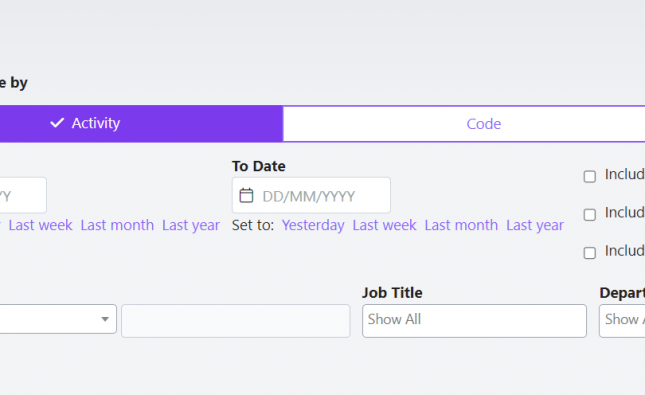Misusing alcohol and/or drugs is a serious problem. Indeed, according to a recent government report, there were 270,705 adults in contact with drug and alcohol services between April 2019 and March 2020.
As well as negatively affecting the business by causing performance, conduct, and safety issues, abusing these substances could also introduce long and short-term health issues for the user. Drugs and alcohol can affect the brain and the body in numerous negative ways, including damaging the liver, kidneys, and heart, exacerbating ill mental health, effecting long-term, irreversible brain damage, and increasing the risk of several types of cancer.
Members of staff who misuse drugs and alcohol are far more likely to take time off, display poor performance (missing targets and deadlines, making more mistakes, arriving late, etc.), exhibit violent and aggressive behaviour with other staff members/clients, and could also cause accidents leading to injury, even death, depending on the nature of their role.
Discover more about how to spot the signs of alcohol and/or drug misuse at work here.
Your responsibilities
All employers have a legal duty of care under The Health and Safety at Work Act 1974 to protect employees’ health, safety and welfare. And whilst it’s understandable why some organisations may struggle with questions about why they should – or how they can – help employees with drug/alcohol problems, it’s worth bearing this duty of care in mind should you encounter the issue.
Alcohol and/or drug abuse is often a mental health issue for the user, and it can be beneficial for organisations to understand this and to treat the behaviour as such. Whilst this does not mean employers should accept any practices that directly contravene their code of conduct, it might mean something like offering reasonable time away for the employee to seek help or rehabilitation, or having mental health care included in the company’s benefits.
As well as demonstrating that you are a supportive employer dedicated to the health and wellbeing of your staff, it’s often the case that retaining valued, experienced workers is more beneficial to the business than sourcing new staff and incurring costs for recruitment and training.
Additionally, many experts recommend treating drug and alcohol misuse as a medical – rather than disciplinary – matter. Talking to your employee non-confrontationally and offering guidance and support on the matter (even if it’s a referral to a third-party expert) can help break the cycle of addiction much more effectively than acting in a manner which increases feelings of guilt or shame.
This is because many people who abuse substances also battle with a chronic sense of unworthiness, and inferiority – feelings that can be a barrier to getting help or even admitting a problem exists. It’s worth remembering that handling drug or alcohol misuse at work in a way that exacerbates these feelings can result in increased feelings of depression, hopelessness and numbness for your colleague.
In some cases, drug and alcohol abuse could be used to help your employee cope with work-related stress. In this instance, it may also be useful to assess the workplace at large to see if this may be part of a wider stress problem amongst staff members.
Supporting your employee
If you suspect that drugs or alcohol are influencing your employee’s conduct or performance, it’s important to document this behaviour and to talk to them about it non-confrontationally.
It may help you to have information prepared about drug/alcohol support groups or other local services that can provide counselling or treatment.
Apart from this, there are several things you can do that will help rather than hinder your employee during this time, including:
- Not confronting or accusing your employee in front of other coworkers, supervisors, or management.
- Avoiding being accusatory or judgemental, which can lead to deeper feelings of shame and guilt.
- Presenting your concern for their wellbeing, their career success, and their future – all things that will inevitably be negatively influenced by misusing drugs or alcohol anywhere, including at work.
- Giving examples of behaviour you have noticed that have led you to believe your coworker might be struggling with drug/alcohol misuse or has misused drugs/alcohol in the workplace.
- Presenting informed, non-judgemental information about the consequences of addiction and the consequences of abusing substances, including whilst at work.
Policies on drugs and alcohol in the workplace
You don’t have to wait for a suspected case of drugs and/or alcohol misuse at work to create a policy on substance use or abuse (in fact many organisations include information about drugs/alcohol use in their code of conduct, or health and safety policy, for example).
Wherever you choose to keep this information, ensure that it’s easily accessible for all employees (members of staff shouldn’t have to ask for a copy if/when they need to refer to it, e.g.) and that the policy is robust and comprehensive (answering questions, rather than asking them).
Having an agreed-upon plan of action in the form of a drug/alcohol policy will help ensure that issues relating to substance-use at work are dealt with as legitimate workplace matters, and in a non-judgemental way, outside of the personal opinions of others.
It is important that managers and members of staff know and understand why and how the organisation will deal with drug and alcohol related issues; this will help staff gain the confidence to come forward and seek help either for themselves or others, without fear of disciplinary or retaliatory action.
The policy should clearly lay out the process for reporting suspected drug/alcohol misuse at work, or the medical/disciplinary actions that follow a confirmed instance of drug/alcohol misuse at work. To be most effective, the policy might also include:
- The purpose of the policy – for example that it exists ‘to help protect workers from the dangers of drug and other substance misuse and to encourage those with a drugs problem to seek help’
- A clear statement that the policy is applicable to everyone in the organisation.
- The rules on the use of drugs and/or alcohol in the workplace (does the organisation take a zero tolerance approach, e.g.).
- A statement that the business understands that substance abuse problems may be related to mental health and ought to be treated in the same way as any other illness.
- Information about the potential dangers to the health and safety of the employee and their colleagues if their drug/alcohol problem continues or develops.
- Information about why early identification and treatment is important.
- Information about what help is available – for example, from managers, supervisors, occupational health or HR, or from outside counselling and medical help.
- The organisation’s disciplinary position, for example, the company may agree to suspend disciplinary action, where drug or alcohol misuse is identified, on the condition that the worker follows a suitable course of action, such as seeking treatment.
- The provision of paid sick leave for said agreed treatment.
- The individual’s right to return to the same job after effective treatment or, where this is not advisable, to suitable alternative employment wherever possible.
- An assurance of confidentiality for the employee(s) in question.
- An acknowledgement that the policy will be regularly reviewed and that it has the support of the senior management team.



